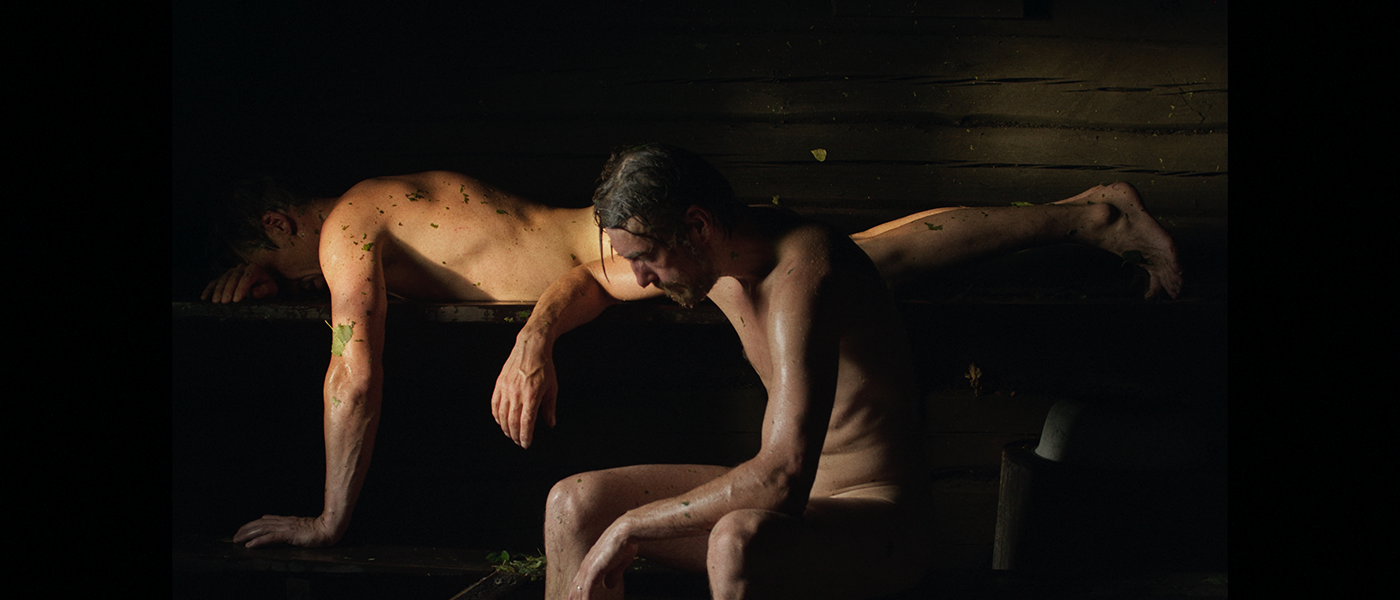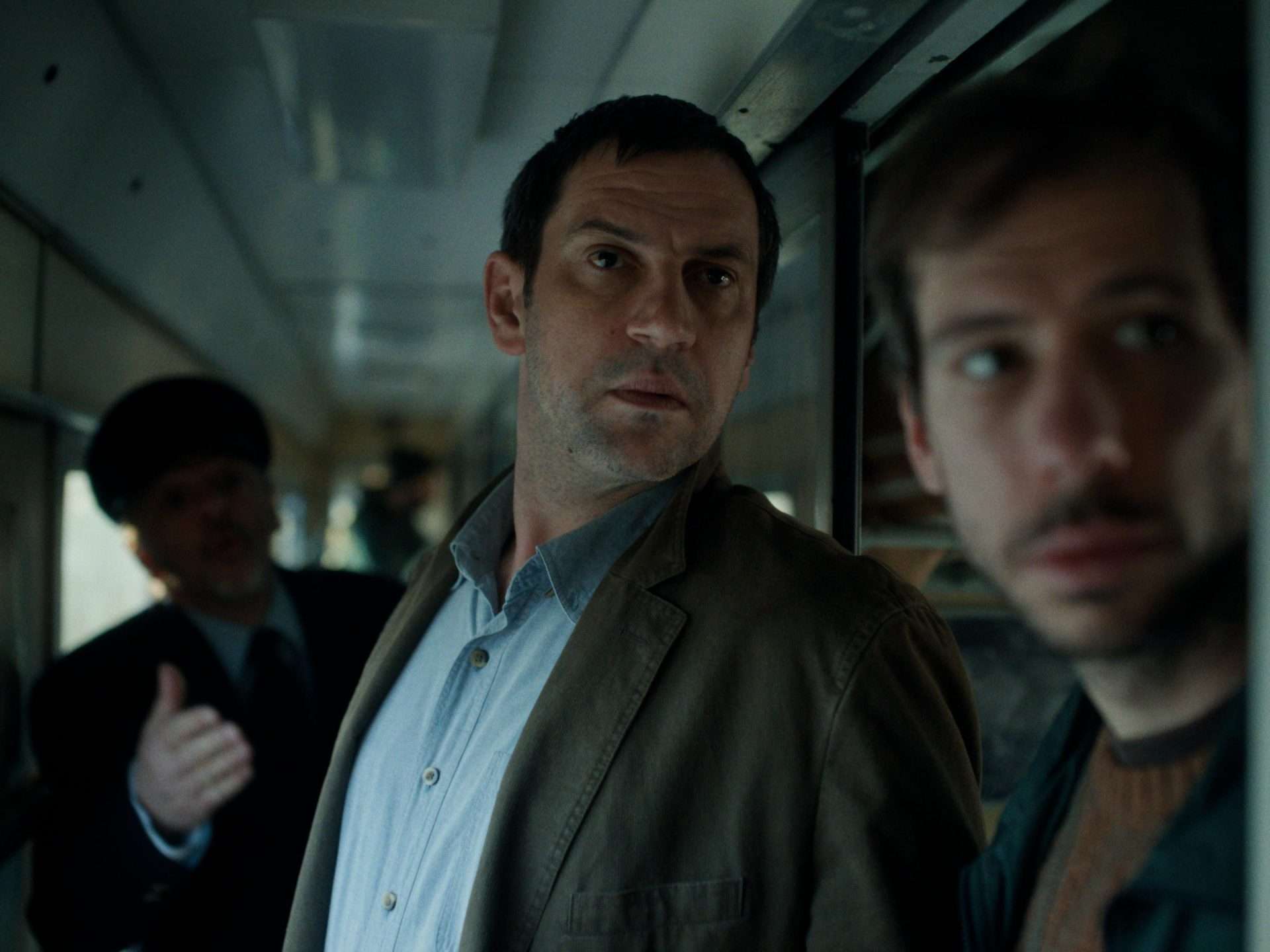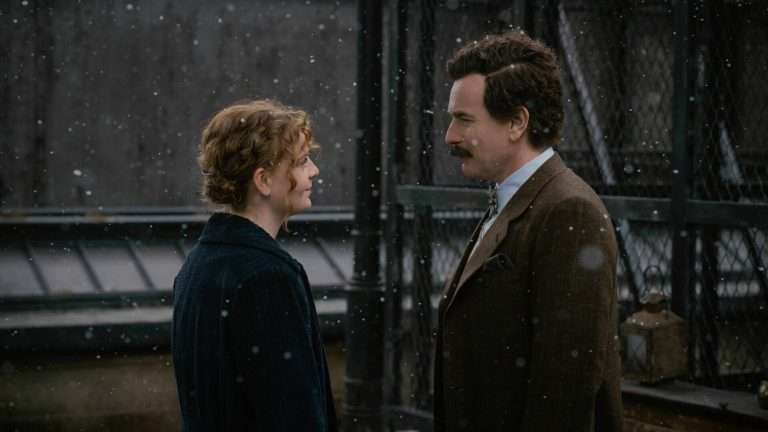Anna Hints and Tushar Prakash emerged as having the most sculpted, tenderly honest gaze into intimacy and privacy, with their 2023 Sundance-winning documentary, “Smoke Sauna Sisterhood.” An unforgettable excursion inside an Estonian sauna, it probed into a cramped space, swirling through the secrets, aches, and small joys of a group of women across a wide age bracket. Filled with raw, confessional energy, it evoked a richly sensory, hyper-immersive experience, embedding us in the lives of the women without ever bordering on the intrusive, instead driven by an essential, sanctifying sort of grace and resilience. Premiering in Critics’ Week, “Sauna Day” is a companion piece unfolding in a similar space but with men.
There are convergences but also marked differences permeating this short film. The spareness of the film doesn’t debar us from fully submerging ourselves in its powerful, palpable, hushed interiority. Unlike the women of “Smoke Sauna Sisterhood,” the men here don’t divulge or bare their souls. The talk is more mundane. There are no soul-searching conversations, and the group that opens the film gradually gets smaller, ultimately comprising just two individuals. Jaak (Rasmus Kaljujärv) and Hillar (Agur Seim). However, the steaming heat, sweat trickling off the skin, and the tactility of naked flesh are familiar elements.
The short film concentrates on the encounter between the two men, possessing an intensity that escalates. Verbal exchanges are mostly exchanged for physical gestures, with a nettle whisk being lashed by one on the other. The ritual, primed as a post-work unwinding session, feels as if it is inviting a heaving purge of the soul. Ants Tammik’s camera occasionally cuts to consider shots of the birch and olive leaves in frantic motion. The sound of the brush and scrape enmeshes with the furiously energetic movement.

“Sauna Day” is a hypnotic, mystifying short film, curiously embodying a sense of reserve and remove. Yet, as the amped-up action settles down into serenity and stillness, there’s an abundant whiff of release being exuded. The sauna space is one of extreme vulnerability. The two men don’t share any intimate details, but the encounter is charged with an elemental energy. An impression forms of the two shedding at least some stuff that has been bundling them down. They may not verbally acknowledge it, yet there is a persistent awareness of it. One is helping the other let go of such baggage by way of a peculiar purification.
Premiering in the short film competition, “The Man Who Could Not Remain Silent” is a brilliantly condensed examination of the meaning and dimensions of guilt, moral indolence, and the degree to which we can endure and normalize injustice. Angling in on a high-stakes moment when everything seems to close in on the helpless, and the onus falls on the ‘safer’ to salvage the circumstance by registering some form of dissent, Nebojša Slijepčević’s short infuses extreme dread with a stab of moral urgency. The film deliberately eschews any specifics of context, be it time or the particular location. While we can make our assumptions, such details need not eventually matter since the horror of the story lies in its tragic, universal timelessness.
In the film, the train halts at a station that it wasn’t supposed to have. Passengers are surprised. Quickly, a flurry of consternation and disquiet surrounds the space. Certain paramilitary forces leap on the train and start vehemently insisting on an inspection of everyone’s IDs. Dragan (Goran Bogdan) has his, but one of the people in his coupe nervously confides he’s not in possession of any official documents. Dragan reassures him not to worry, insisting he and the other passengers will ensure nothing happens to him. For a while, we only hear people outside the coupe being interrogated and shoved out of the train by the armed guys. When they finally enter Dragan’s coupe, Dragan’s promise of security peters out yet resistance does find its flares upon the hounding of the young man without the ID. Religious profiling is intrinsically laced into the interrogation.
Goran Bogdan’s face stunningly captures the entire breadth of the film’s moral inquiry. In the guilt that slowly begins to creep up and the burden of one’s moral lapse in not standing up, the actor brilliantly conveys it all with the most minimal dialogue. Courage comes at a price, a sacrifice made while those who chose to be silent bystanders may never be able to extricate themselves from the crushing weight of complicity. The Man Who Could Not Remain Silent provokes a necessary, indicting unease.









![Milestone [2021] Netflix Review – Harsh and humane, Ivan Ayr’s film richly mines inner desolation](https://79468c92.delivery.rocketcdn.me/wp-content/uploads/2021/05/Milestone-Meel-Pathar-3-highonfilms-768x480.jpg)